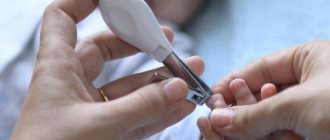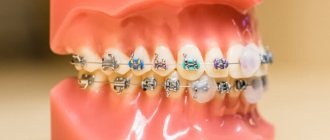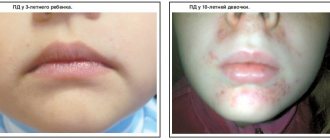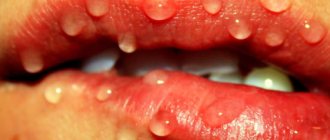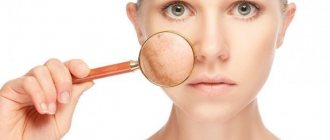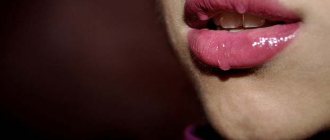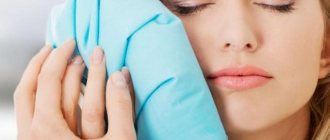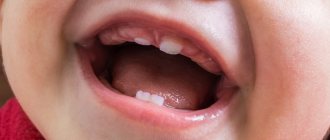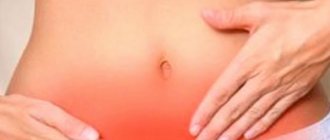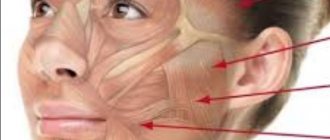How to recognize a cough from drool
The child has been having strange coughs for a month now. Precisely coughing, as if he was choking.
But very often during the day. While screaming, roaring and just like that. The local pediatrician says he doesn’t hear anything in the bronchi. Just in case, I prescribed Gedelix. We drank it, but the cough remained. The masseuse (though she has a higher medical education) says that the child is choking on saliva. I would like to hear if anyone has had this happen before? Could this be due to drool? When did it pass?
there is no bronchial tube, and the throat is not red? I'm coughing, I think it's already irritated by the cough and I need to drink some medicine, but only after consulting a doctor
the throat is not red, both the doctors and I looked at it several times
We were also told - drool. And then the temperature soared, the snot began to flow: 010: It turned out that there was a blow on his high chair from the window in the kitchen.
Damn, I’m also thinking, is it possible that drool can cause a person to cough for so long, maybe there’s another reason?
I visited the manager today. our clinic, as a pediatrician she is very experienced and competent, so she said that drooling prevents a child from coughing often. The causes of cough, in her opinion, may be:
1.Dryness of the mucous membrane. You need to keep a saucepan of water in the room at all times. And ventilate the room every hour. Don’t buy an air humidifier, because after six months it’s a collection of microbes. 2. The child has enlarged tonsils and after eating, the remains of solid food cause irritation. We need to drink more water. Now we drink a maximum of 100 ml of tea per day.
We will try to follow all the recommendations. I’ll write about the results
Yes, that's right - it's drool. especially if the teeth are coming out, then the drool flows like a river, that’s why he coughs
The child has been having strange coughs for a month now. Precisely coughing, as if he was choking. But very often during the day. While screaming, roaring and just like that. The local pediatrician says he doesn’t hear anything in the bronchi. Just in case, I prescribed Gedelix. We drank it, but the cough remained. The masseuse (though she has a higher medical education) says that the child is choking on saliva.
I would like to hear if anyone has had this happen before? Could this be due to drool? When did it pass?
We also sometimes cough, but now the baby is teething, I think because of the drool. Because it flows like a river:)
The child has been having strange coughs for a month now. Precisely coughing, as if he was choking. But very often during the day. While screaming, roaring and just like that. The local pediatrician says he doesn’t hear anything in the bronchi. Just in case, I prescribed Gedelix. We drank it, but the cough remained. The masseuse (though she has a higher medical education) says that the child is choking on saliva.
I would like to hear if anyone has had this happen before? Could this be due to drool? When did it pass? I don’t want to scare you, but we had a similar situation in our topic - a child coughed for a long time with clear bronchi - it turned out to be whooping cough: 001:
source
Rash on a child’s chin: why does irritation and allergies appear around the mouth and what to do?
A small child has developed irritation and a rash on his chin - this is an alarm bell for parents. If such symptoms appear, you should try to find out the cause of the disease and carry out the necessary therapy. Often the causes of the rash are quite harmless and are eliminated quickly, but what to do if the rash does not disappear and causes great inconvenience to the baby?
Irritation from drool on the chin in children: symptoms
This problem usually affects very young children. Excessive salivation occurs due to teething or constant sucking of fingers or fists. The release of a large amount of saliva helps to cleanse the baby's mouth of harmful bacteria and germs that could be carried from the hands.
Externally, irritation from drooling in a child can be recognized by the following signs:
- small pimples around the mouth and on the chin;
- the skin around the rash is red and inflamed in appearance;
- clear boundaries of the affected area: between the foci of rash the skin is of a normal color;
- irritation causes discomfort to the baby: it itches, itches and hurts, especially when touched (for example, when wiping the mouth).
Why do red pimples appear on the chin and around the mouth of a child?
The causes of rashes on the face and chin can be very diverse. To get rid of unsightly and disturbing pimples, it is important for parents to know the nature of their occurrence.
Causes of acne on the face:
- excessive salivation;
- heredity;
- improper functioning of the gastrointestinal tract;
- lack of vitamins;
- hormonal imbalances;
- allergic reactions;
- decreased immunity;
- some types of diseases (measles, rubella, scarlet fever, pyoderma, chickenpox);
- climate change;
- change of diet or incorrect diet.
The main types of rashes in children around the mouth
The rashes do not always resemble small red pimples. Sometimes their appearance differs from usual - the formations may look like tubercles with a white top, small nodules or bubbles with clear liquid. Acne may form on the chin.
Small pimples and reddish nodules are a sign of an allergic reaction or a manifestation of contact dermatitis. Children with weakened immune systems are susceptible to this type of rash. Small blisters and an enlarged area of rash may indicate a worsening condition.
Watery blisters with a thin skin at the top appear as a result of an allergy to some food or after taking certain medications. It was often possible to observe such acne in children who received a large dose of vitamin C.
Pustular rashes indicate the presence of bacterial infection. Outwardly, they resemble pimples with a white tip. It is impossible to squeeze out ulcers - it can provoke even greater inflammation.
Normal or pathological: how to recognize an allergy?
At an early age, when the child’s immune system is not yet stable enough, skin rashes can appear quite often. In most cases, these are manifestations of contact dermatitis or an allergic reaction.
Distinctive signs of allergies are:
- small spots on the skin of irregular shape;
- severe itching in the red area;
- the appearance of lesions not only in the mouth and chin, but also in other places: buttocks, arms, cheeks;
- behavior changes - the baby becomes too excited or, conversely, lethargic;
- the spots turn pale and go away after taking antihistamines (be sure to consult your pediatrician before taking them).
Often, parents diagnose allergic lesions and rashes that appear as a result of hormonal imbalance based on photographs.
Treatment of rashes and irritation
Therapy should be carried out by a pediatrician. After passing the tests and external examination of the rash, the specialist makes a conclusion about the genesis (origin) of the rash, gives the necessary explanations to the parents and prescribes treatment.
In some cases, so-called zero therapy is used.
Its essence is to refuse to use creams or cosmetics temporarily until the lesion passes, or on an ongoing basis (to prevent a possible relapse).
When identifying diseases whose symptoms are irritation and rash on a child’s chin, adequate therapy is needed. You should not get rid of the irritation, but rather the disease that caused it. For example, with measles, the rash goes away on its own after a few days.
Irritation from drool in infants and infants is usually treated by lubricating the affected areas with regular baby cream. It is important to avoid excessive and constant wetting of the skin. To do this, you need to lay an absorbent diaper on the pillow, which should be changed periodically.
They also use bibs. During the child's waking hours, parents should closely monitor the child and wipe away drool in a timely manner. It is better to use sterile wipes. The baby's skin should be blotted rather than rubbed.
In the morning and at night, as well as during the day, wash the baby’s face with warm boiled water.
In addition to medication or traditional methods of treating irritation, there are many traditional medicine recipes. Both methods can be used separately or in combination. It is important that traditional recipes are approved by the attending physician.
Most often, washes, ointments, lotions or compresses based on natural ingredients are used to get rid of rashes:
- aloe juice;
- calendula;
- chamomile;
- sage;
- nettle;
- celandine.
Preventive measures
If your baby drools profusely, it can be quite difficult to prevent irritation and rash. It is important not to forget a few rules that will reduce the likelihood of an unpleasant condition for the baby:
- walk with your child in the fresh air every day;
- observe the rules of hygiene;
- Monitor the wetness of the diaper on the pillow and the bib (change them in time for dry and clean ones).
In other cases of rash (allergies, hormones, illnesses), recommendations are individual for each cause of acne. If you make a general list, it will look like this:
- balanced diet;
- do not take medications without a doctor’s prescription;
- use gentle household chemicals (baby washing powder, cleaning products without aggressive components);
- develop and maintain lasting immunity.
Source: https://RosMedPlus.ru/simptomy/kozha/razdrazhenie-ot-slyunej-u-grudnichka.html
Cough from drool
To Malakhova, Pinchukov, in my opinion, doesn’t understand anything
There is no problem to see an allergist for a fee, 500 rubles and on a first-come, first-served basis
Four months. The drool thing is complete nonsense. An allergist and a pulmonologist contacted us. In Tambov regional children's hospital there are not bad specialists.
It could be due to anything... Ask for a referral yourself, and if they don’t give it, then they accept it for a fee.
We also don’t offer anything to anyone until you start asking for it yourself!
Sorry to intrude into the conversation) Is there a paid pulmonologist? The regional registration is already for June
Previously, there were no paid services at all, but now you are welcome. You just need to call and find out what day. 58-00-37 reception phone number .
The pulmonologist does not provide paid appointments, they said so yesterday
I meant, do you know if there is a paid pediatric pulmonologist somewhere else in Tambov?
Well, at least take the author to see the child’s allergist or ask for a referral from your pediatrician and on a first-come, first-served basis. Difficult, but possible.
They can probably give us directions, we live in the region (Pushkari)
Of course, the pediatrician can give a referral, our pediatrician is simply inadequate. The allergist wondered why we paid, is it really difficult to write a referral to a pediatrician?
The paramedic can hardly give it. And as for the pediatricians, our district police officer also has no desire to treat us (that’s what the regional pediatrician said when I told him what our doctor prescribed for us). Now it’s like this everywhere (((
source
What to do to prevent your child from becoming irritated
The saliva that flows out should be constantly removed with a clean handkerchief, or even better if you use disposable sterile wipes. In this case, the saliva should not be wiped off, but gently blotted, so the skin will be less injured.
If the baby is in a crib, you need to put a soft diaper, folded in several layers, under his head; it will absorb the saliva that is released. The diaper must be constantly changed to a clean one, and not just dried, because saliva makes it rough.
Children who are already sitting independently can wear special bibs over their clothes, which absorb saliva well and protect clothes from getting wet.
Thanks to this, the skin is protected from irritation.
You need to cleanse the baby’s skin of saliva not only with a handkerchief or napkin, but also wash the baby’s face, neck and chest with warm water several times a day.
Skin that is constantly exposed to saliva should be lubricated with a nourishing baby cream. It will not only soften and moisturize your baby's skin, but also relieve inflammation.
Why does it happen?
It is not so easy to determine the reason for increased salivation. Most often, existing diseases of the digestive system, diseases of the oral cavity and many other pathological conditions lead to this condition.
Among them, the most common are the following:
- Narrowing of the esophagus, gastric ulcers, gastritis, pancreatitis and cholecystitis. In these cases, salivation is provoked by high acidity of the stomach.
- Inflammation in the oral cavity such as stomatitis, gingivitis or sore throat.
- Psychoneurological disorders, including traumatic brain injury and the presence of a tumor process in it. With many of these diseases, the work of the muscles involved in swallowing decreases, as a result of which saliva accumulates excessively in the oral cavity and it is difficult for a person to swallow it.
- Hormonal disorders due to endocrine diseases.
- Use of certain drugs (Nitrazepam, Muscarine).
- Intoxication with food, alcohol, medications or any chemicals.
- The presence of a foreign object that irritates the mucous membrane.
Increased salivation during a cold is a protective reaction in response to the penetration of a foreign microorganism. When they enter, the channels of the salivary glands swell, inflammation develops, as a result of which saliva is intensively produced. When it passes, a person gets rid of pathogenic pathogens and their toxins.
Strong salivation, as a physiological reaction of the body in adults, can only occur during pregnancy, as well as in smokers under the influence of nicotine.
Pimples from drool in a child: causes
Quite often, when acne is discovered in a child in the area of the lips, mouth and chin, especially young mothers come up with completely different reasons and personal fears. Among the wrong reasons for the appearance of such acne in a child, an allergy to baby food, formula, or even mother's milk is often cited.
It is worth noting that allergies to any food products, diathesis, or other allergens and skin diseases in a child appear in the form of a rash on the cheeks and forehead, but their main location is not the area around the lips and chin.
In order to make sure that your baby is not allergic to any foods, we strongly recommend that you go to your pediatrician and get a referral for tests to determine whether your rashes are an allergic reaction.
If during the examinations the allergen is not detected, then with a 90% probability the appearance of acne in the child in the area around the lips and on the chin was caused by a skin reaction to constant irritation from drool. If you notice your child frequently drooling or licking his tongue around the mouth, then the likelihood of causing irritation over a long period of time increases by 100% compared to food allergies or skin diseases.
It often happens that before going to bed you saw a completely healthy child without the presence of acne in the lower part of his face, and in the morning you find irritation in this area and a rash of small pimples or redness. The problem is that when saliva comes into contact with the child’s delicate skin, inflammatory reaction, especially when it affects children's skin in large and prolonged quantities.
The most dangerous time for the appearance of acne from saliva in a child is the time of teething, which is accompanied by the greatest increase in the production of salivary fluid and, as a result, its excessive presence in the mouth, constant crying from pain during teething and the flow of saliva when the mother does not have time to wipe, or if drooling spreads at night, then the child’s skin reacts in the form of pimples on the chin or around the lips and mouth.
The most common causes of small pimples in children and infants!
How does it manifest?
To eliminate the increase in secretion of the salivary glands, it is important to identify the reason why this reaction of the body occurs. To do this, it is important to evaluate the entire clinical picture and only an experienced specialist can do this correctly. So, if excessive drooling occurs due to a cold, a person usually begins to worry about the symptoms characteristic of this disease:
- Painful sensations in the throat.
- Periodic cough.
- Nasal congestion, runny nose.
- Increased body temperature.
- General malaise.
Increased salivation in adults often develops against the background of problems with the digestive system. In this case, nausea, vomiting, belching, stomach pain, loss of appetite, and changes in the nature of bowel movements may additionally appear.
Increased salivation can be judged not only based on the patient’s complaints, but also from an examination, during which it is possible to detect the presence of several symptoms specific to this condition:
- Increased frequency of swallowing. It is explained by the rapid accumulation of saliva in a short period of time.
- Periodic or regular leakage of saliva from the mouth. As a result, at the site of irritation, where the skin often comes into contact with saliva, its integrity may be compromised. Also, on these areas of the skin, pustules with purulent or bloody contents may appear, which may also include pathogenic microorganisms.
There are often cases when complaints and visual signs alone are not enough to understand the cause of hypersalivation. For the purpose of differential diagnosis, the doctor must conduct a detailed examination of the patient, paying due attention to examining his oral cavity for the presence of traumatic injuries and inflamed areas.
Also, the doctor must prescribe an enzymatic analysis, with the help of which the volume of saliva secreted is determined.
What causes a child to drool?
Experts most often associate increased salivation with teething.
But it happens that excessive salivation can also be observed in very young children whose teeth have not yet begun to emerge. This happens in babies who suck their fists and fingers; in this case, increased salivation helps cleanse the oral cavity of pathogenic microbes. Some babies drool very heavily: we can say that saliva flows constantly - both during wakefulness and during sleep, it not only constantly wets the chin and cheeks, but also flows under the collar of clothes and flows onto the pillow. Because of this, the baby's delicate skin is constantly irritated.
Of course, almost all mothers do not ignore saliva, they constantly wipe it away, but due to frequent wiping, the skin becomes even more irritated, and in some places it can even crack.
If microcracks appear on your child's skin, they can be treated with any baby cream.
As practice has proven, it is simply useless to fight excessive salivation; this process will stop on its own when the time comes. But you shouldn’t leave it unattended; you must definitely help the child and prevent irritation and pain from occurring.
Drooling during sleep
This problem should be considered separately, since the reasons for its occurrence are somewhat different from those stated above. Usually at night a person produces a small amount of saliva. High salivation during sleep is usually indicated by wet spots appearing on the pillow.
Typically, hypersalivation during these hours results from:
- The habit of breathing through your mouth. Also, mouth breathing can occur with ENT pathology, impaired nasal breathing (rhinitis, nasal septum defect).
- Anatomical defect in the jaw area in the form of a malocclusion. As a result, a person cannot close his jaw while sleeping, so saliva flows out. In older adults, this is possible due to relaxation of the lower jaw.
- Sound sleep during which a person cannot control the movements of his own body.
Although drooling during sleep in adults can occur for a number of reasons that do not require special treatment, if other unwanted symptoms appear or significant discomfort occurs, you should consult your doctor.
Treatment
There are several therapeutic methods that can be used to influence hyperconfusion in adults. If there are indications to reduce the secretion of the salivary glands, the following is used:
- Anticholinergics. Among this group of drugs, Riabal, Platyfillin, Spasmolitin, and Aprofen are most often used. These medications are not without the ability to cause side effects in humans, such as dry mouth, tachycardia, and even blurred vision. Therefore, they should be used only as prescribed by the attending physician.
- A cryotherapy method that improves the swallowing reflex.
- Injections of botulinum toxin into the salivary glands.
- Excision of salivary glands. The operation is carried out strictly according to indications. It is dangerous due to possible complications in the form of damage to the facial nerve.
- Treatment with ionizing radiation.
- Massage and other physiotherapy to eliminate neuralgia.
However, for therapeutic methods in adults to be effective, they must include measures that eliminate the very cause of the development of the pathological condition.
Therapeutic tactics, depending on which system in the body has been disrupted, are usually determined by an ENT doctor, a gastroenterologist, a neurologist, or an infectious disease specialist.
Unconventional methods
Often adults have a desire to cure increased salivation on their own. The most common and inexpensive methods include rinsing the mouth with infusions and decoctions from:
- Herbal mixture (with chamomile, nettle, oak bark and sage).
- Viburnum.
- Water pepper.
- Shepherd's purse.
No less effective is drinking tea acidified with lemon juice and rinsing your mouth with slightly diluted potassium permanganate. However, all these procedures lead only to temporary improvement, and sometimes may even be useless, since they do not eliminate the very cause of hypersalivation.
Prevention
There are factors that can affect excess saliva production. In order to enhance the effect of the therapy and reduce the risk of possible relapse, you should adhere to the basic rules:
- Eat healthy foods (exclude salty, spicy and fatty foods).
- Do not drink alcohol, quit smoking.
- Maintain oral hygiene.
- See your doctor regularly.
- Normalize sleep.
- Avoid stressful situations.
All of these measures not only help reduce the secretion of the salivary glands, but also, no less important, improve the functioning of the immune system.
source
